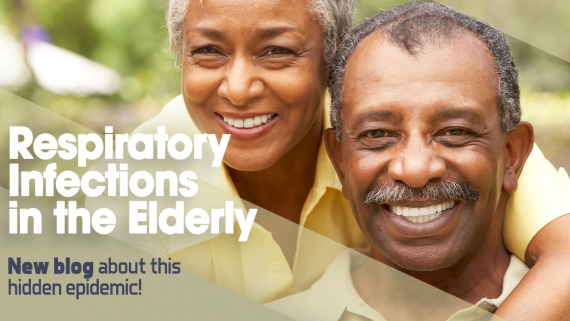As the cold and flu season is closely approaching, all must take precaution especially those individuals who are much older. Development of a respiratory tract infection is very common during this time.
Upper respiratory infections (URIs) are infections affecting the upper part of the respiratory tract including the nose, sinuses, pharynx, and larynx. They are very common infections, with the US alone seeing more than 3 million cases each year. Some examples of URIs are the common cold, rhinitis, sinus infections, and laryngitis.
Symptoms of URI
- Nasal congestion
- sneezing
- coughing
- scratchy or sore throat
- headache
- fever
- mucus production

Prevention
- avoiding people who are ill;
- if you are ill, remain at home until you are no longer contagious;
- avoid touching your nose, eyes, and mouth with unwashed hands;
- cover your cough and sneeze; sneezes and coughs should be covered with the elbow or sleeve – not the hand
- wash your hands often, and properly (20 seconds or more with soap and warm water).
- modify your lifestyle through smoking cessation and stress management, which may decrease your susceptibility to catching the common cold
Clinical Research Study
Although flu vaccines are an option, clinical trails are enrolling for those suffering with respiratory tract infection. If you or a loved one is dealing with this, participating in a research study might be an option. ActivMed Practices & Research is now enrolling those who qualify for the study. To learn more click here.
Respiratory infections, like RSV and pneumonia, continue to wreak havoc on the elderly population year after year. Some call it a “hidden epidemic”. To better understand why the elderly are more vulnerable to respiratory infections, we need to look at what happens to our bodies internally as we grow older.
The Toll of Time
As we age, our immune systems become less effective, called immunosenescence. The immune response decline is different for everyone after age 65. However, everyone after that age is more susceptible to infections than when they were younger.
Risk Factors
With a less effective immune system combined with the increase and severity of a respiratory tract infection, the results can be life-threatening. Some risk factors include:
- Chronic Conditions- Heart disease, diabetes, stroke, and COPD are a few examples. Conditions that affect the ability to produce a strong cough can be especially dangerous.
- Infectious Environments- Any place where sick people gather for treatment or are living, such as hospitals and nursing homes.
Prevention
Experts agree that prevention is still the best defense against respiratory infection. The CDC has the following recommendations when it comes to reducing the chances of contracting a respiratory infection:
- Wash Your Hands Often– Use soap and water for 20 seconds. If soap is not available, use alcohol-based hand sanitizer
- Keep Up With Regular Vaccinations: Keep up to date on recommended vaccines
- Keep Hands off Your Face- Avoid touching eyes, nose, and mouth with unwashed hands
- Avoid Close Contact with Sick People- Avoid kissing, sharing drinks, or sharing eating utensils with people who have symptoms of being sick
- Cover Coughs and Sneezes- Cover mouth and nose with a tissue when you sneeze or cough. Throw tissues in the trash after
- Clean/Disinfect Surfaces- Disinfect surfaces that are frequently touched, such as doorknobs
- Stay Home When You Are Sick- Staying home (when possible) from work or other public places when you are sick prevents it spreading to others
At ActivMed Practices & Research, Inc., we are committed to not only working with patients to find current treatments that will deliver the most impactful results, but also working to develop new treatment options through clinical studies.
We are currently seeking patients for upcoming studies evaluating trial medications that may prevent RTI in those 65 and older. Qualified candidates who participate will receive study-related care at no cost. There is also compensation for travel. To learn more and see how you or someone you love may qualify for a study, please click HERE.
References:
https://www.cdc.gov/rsv/factsheet-older-adults.html
https://www.infectioncontroltoday.com/infections/older-adults-higher-risk-respiratory-infections
https://www.aging.com/what-causes-pneumonia-in-the-elderly/





